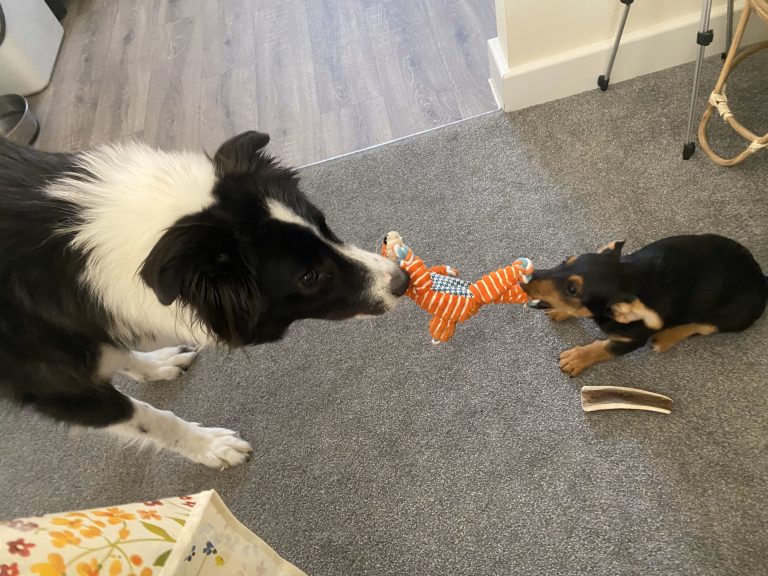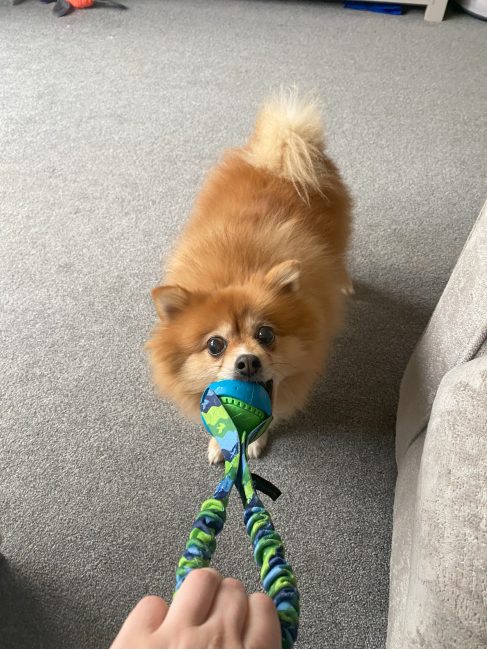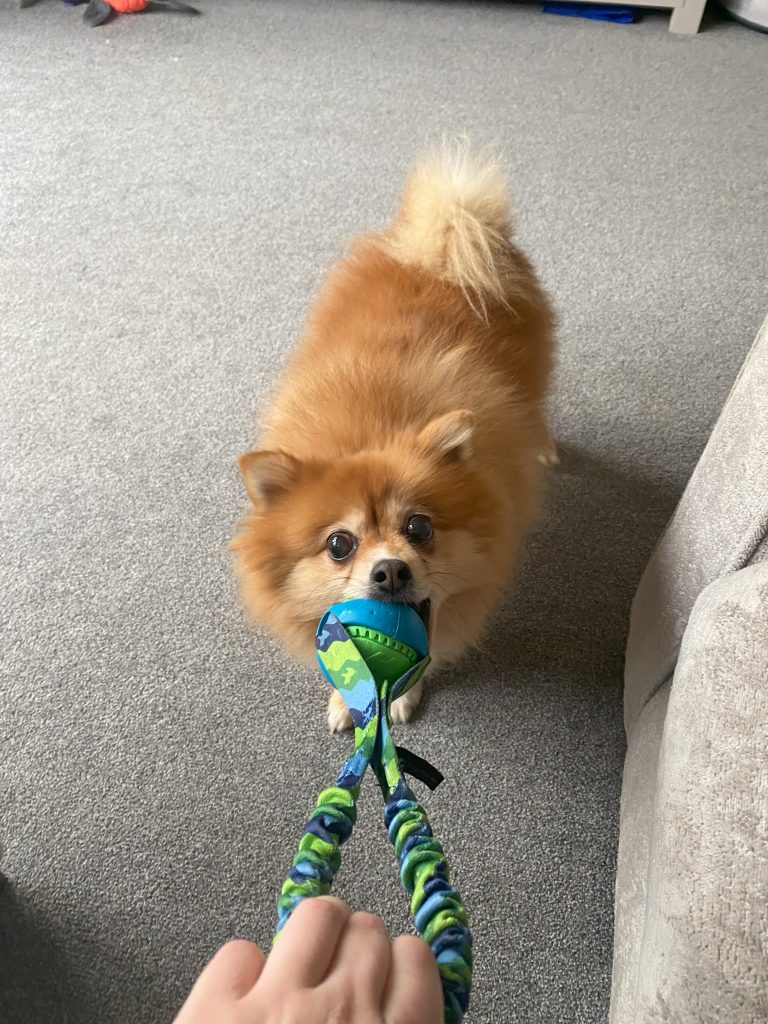Playtime!
Playing is an essential way to keep your dog active and happy. For a blind dog, games like “fetch” may are absolutely still possible, IF that’s what your dog enjoys! But every dog is different and it’s about finding out what drives them, what motivates them and what they get a kick from doing! Do they like to use their nose, do they listen to the sound of a toy being rolled across the floor, do they want to tug on the end of something fluffy, do they want to shred something up, do they want to chew something? There are so many different things our dogs can be interested in!
Do toys need to have distinct smells and sounds? Nope. They can do, if that’s what drives your dog! But do you need to spend lots of money on fancy toys? Not unless you want to.
Beating Boredom
Blind dogs can quickly become bored, which can lead to destructive behaviours. To beat boredom, consider rotating your dog’s toys and chews regularly, as this will keep each item fresh and exciting. I would also advise keeping a couple of high value tug toys away so that when they do come out they are associated with you which will make bonding and play much more enjoyable! Just picking up a random toy out the toy box doesn’t have the same effect for a lot of dogs. You can also provide your dog with interactive toys or even homemade puzzles to keep their minds stimulated, which I will discuss more below. If you don’t have time to put into helping your blind dog and you think they need more, consider hiring a dog walker who can give them the attention and exercise they need while you’re away.

Decompression Time
Just like people, dogs need downtime to relax and unwind. For a blind dog, decompression time is crucial, as they can be more vulnerable to stress and anxiety. Offer your dog a quiet, comfortable space to decompress, pop their bed away from high traffic zones and avoid disturbing them when they are in that space. Soft music or white noise machines can help create a calm environment too. If we want to relax we might pick up a book, listen to an audiobook, have a bath, watch a film… but how do our dogs do this? Without vision life for them can become boring and they have no real way to decompress after an eventful walk or something that has been stressful. We need to offer them ways to relax themselves and we call this decompression. It’s offering them a chance to do natural behaviours like sniffing (snuffle mat), licking (LickiMat), Digging (sandpit), Chewing (natural chews)… something they can do at their own pace, in a calm environment, without interference.
Going for Walks
Dogs love going for walks, and it’s an excellent way for them to get exercise and explore new surroundings. For blind dogs, going for walks may require extra precautions and training but it’s a way for them to read what is going on in the world through their nose. Walking a blind dog doesn’t have to be all about speed and getting as many steps in as possible to make sure they have burned enough energy, a walk is your dog’s time and if they choose to spend that running in an open field or sniffing round the local lamp posts that’s totally okay! If your dog is newly blind try to stick to the same path for a while to help them build confidence up and then you can start to explore together a little more.

Having Patience
Finally, the most crucial element of giving your blind dog an enriching life is having patience and empathy. Blind dogs may require more time and effort, but the love and companionship they provide are worth it. Try to adopt a positive attitude towards your blind dog, and remember that they are capable of living a full and happy life with the right care and attention.
Caring for a blind dog can be a challenge, but with patience and creativity, you can help your furry family member live a fulfilling and engaging life. Providing stimulating toys, a safe environment, decompression time, and training your dog to be an active participant in their own life can all go a long way toward improving your dog’s quality of life. If you’re feeling overwhelmed, consider reaching out for additional guidance and support. With a bit of effort, you can help your blind dog live their best life!


